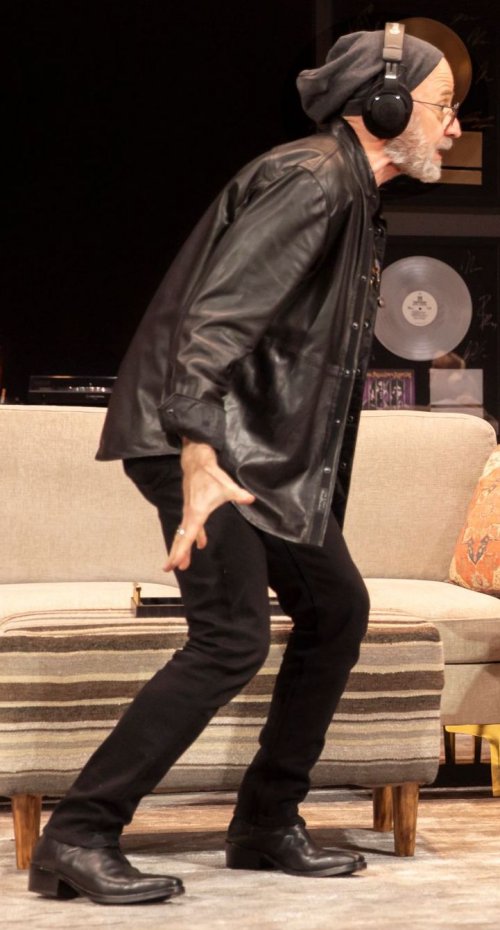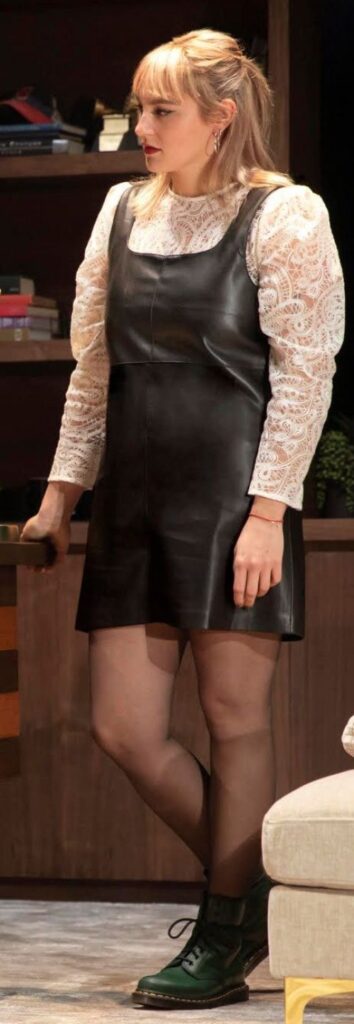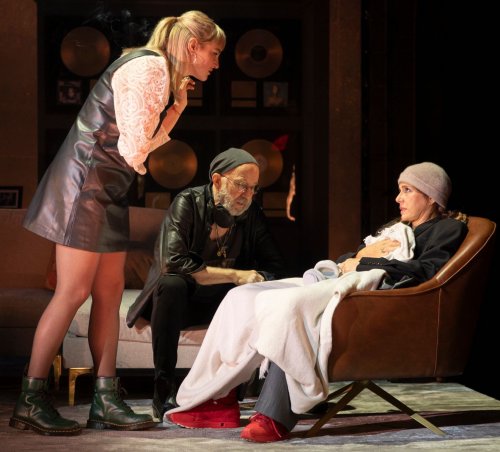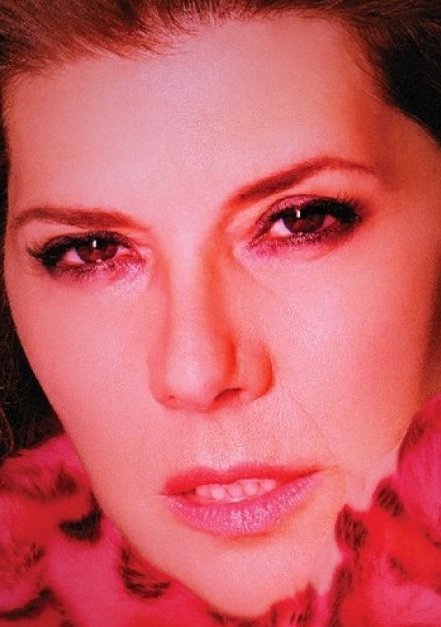
(Photo credit: Monique Carboni)
By: Darryl Reilly
You’re a smart girl. You’ve got poise, you’re motivated. You don’t give up. You push back. And you’re attractive, which I didn’t say. We’re not allowed to say things like that anymore. So, you didn’t hear it, not from my mouth. But it matters. There’s an ease attractive people have with each other. Most of the artists we work with are attractive and they respond to other attractive people, they like to be around people they can imagine themselves fucking.
So, remarks a male, 72-year-old veteran artists and repertoire representative at a major music company to a 25-year-old virtue signaling white female, prospective candidate during a job interview in the opening scene of playwright Jessica Goldberg’s scorching and scintillating contemporary drama, Babe. There hasn’t been such fierce culture clashes onstage since David Mamet’s 1992’s Oleanna; Babe’s finale is just as incendiary. Ms. Goldberg offers three vivid, and articulate characters in her challenging and provocative work. The present and the past collide during 90-tense, combative and reflective minutes; there are occasional flashbacks of a dead, celebrity female singer songwriter.

Clad all in black, including a flowing leather shirt jacket and a wool cap, the lean and lithe Arliss Howard is searing as Gus, the elder chieftain whose pragmatic eye for talent has taken him to the top. Speaking in a soaring, rangy twang, the supreme Mr. Arliss visually and vocally totally embodies this amoral creative genius. Arliss is particularly acute when pondering the machinations of his superior, the unseen omnipotent CEO “Bob” whose lair is on an upper floor, and when tenderly reminiscing about seeing Bob Dylan live for the first time as a youth. Arliss’ galvanizing performance is among the most powerful to be experienced on the current New York stage.

(Photo credit: Monique Carboni)
Marisa Tomei is incandescent as Gus’ free-spirited, pushing 50, cancer survivor long-time right hand and former lover, the single Abigail; she has seen it all and was integral to his success. Ms. Tomei’s enduring star quality informs her towering characterization. Abigail’s eternal girlishness, feistiness and wiliness, are all majestically conveyed by Tomei, especially in the sizzling climax.

(Photo credit: Monique Carboni)
The vivacious Gracie McGraw with gusto, comically and chillingly portrays the young interloper Katherine, who upends Gus and Abigail’s lives with her extreme ultra progressive agenda. Ms. McGraw also beautifully plays the deceased pop music star Kat Wonder. McGraw is indelible in both of these pivotal roles.

Gracie McGraw, Arliss Howard and Marisa Tomei.
(Photo credit: Monique Carboni)
Director Scott Elliott’s energetic physical staging mines the piece’s physical, verbal and societal conflicts with visual elan. Framed gold records and gleaming modern furnishings are the hallmarks of Derek McLane’s gorgeous scenic design. Lighting designer Cha See’s entrancing variance of jolting brightness and eerie dimness perfectly complement the play’s actions and tones. Jessica Paz’s crystalline sound design realizes effects and BETTY’s authentic, original past-era pop tunes. Gus’ all-black Keith Richards-style ensemble, Abigail’s quirky outfits, Katherine’s tweaked business attire, and Kat Wonder’s cool popstar regalia, are all fabulously rendered by costume designer Jeff Mahshie.
Set in 2023, Babe is a lacerating take on current cultural and workplace issues, theatrically presented and bracingly performed.
Babe (through December 22, 2024)
The New Group
The Pershing Square Signature Center,
The Alice Griffin Jewel Box Theater, 480 West 42nd Street, in Manhattan
For tickets, visit www.thenewgroup.org
Running time: 90 minutes with no intermission
